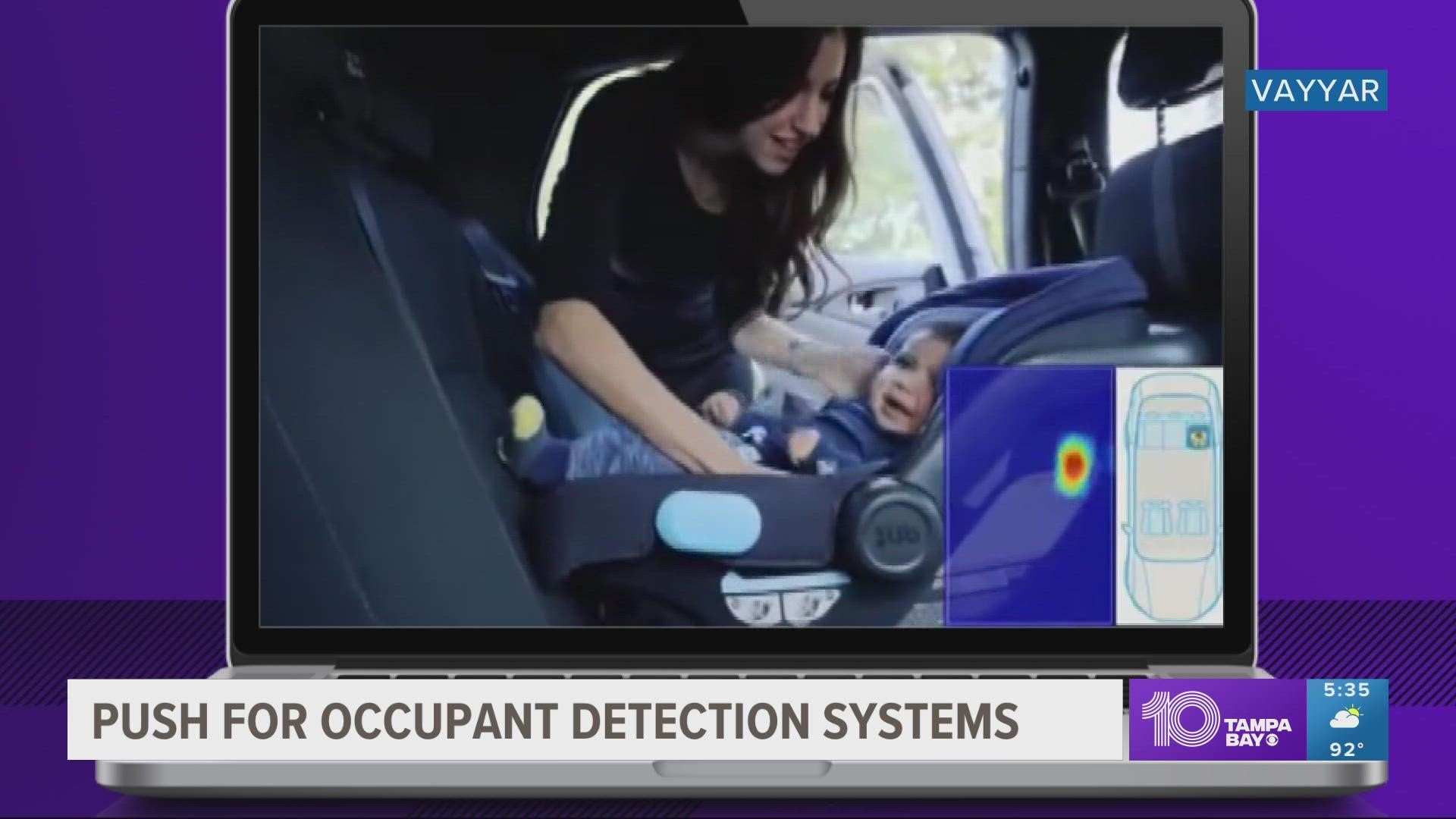ST. PETERSBURG, Fla. — A 3-year-old child in Miami Gardens died after being left in a hot car for several hours Monday.
It's the first so-called hot car death this year in Florida, the 11th nationwide according to Kids and Car Safety. This happened at a school where the parents work. When someone noticed they hadn't seen the 3-year-old — that's when the father realized his child was still in the car. But after hours in the car, it was too late.
The non-profit Kids and Car Safety has been pushing for safety measures to warn parents that their child is in the backseat. Part of the new infrastructure bill makes it mandatory for manufacturers to install a rear seat reminder alert.
“That bill requires the National Highway Traffic Safety Administration to look at the different types of technology that are available, and to issue a safety standard or a regulation on the auto industry, on what they have to include in all cars,” the Director of Kids and Car Safety Amber Rollins said.
That means at a minimum NHTSA officials could require the reminder alert or they could call for even more advanced technology. Rollins says an alert is not enough because that system doesn't actually sense whether there's a child, pet or anyone sitting behind you. Kids and Car Safety created this breakdown of the differences.
The group is pushing for NHTSA to require manufacturers to install occupant detection, something that will detect micromovements and a heartbeat with radar or lidar. It will cost less than $50 a car.
“That detection system can work with other systems that are already within the vehicle to alert the driver to remind them to check the backseat," Rollins said. "Now if they missed that reminder, they can send a push notification to the cell phone. They can call emergency contacts. They can sound the alarm on the car, honk the horn, roll the windows down, turn the AC on. They can even use GPS coordinates and send to 911 and say hey, somebody's in trouble here."
Parents need cues like something of yours in the backseat or something that is your child's in the front seat, visual cues are a low-tech reminder.
Many ask how can someone leave a child in a car.
That's why 10 Tampa Bay talked with USF Professor David Diamond. He has studied memory for more than 40 years and for almost 20 years has focused research on how parents lose awareness and forget their kids. You can see that interview with Professor Diamond by clicking here.

